23 Powerful Superfoods To Add To Your Weekly Diet
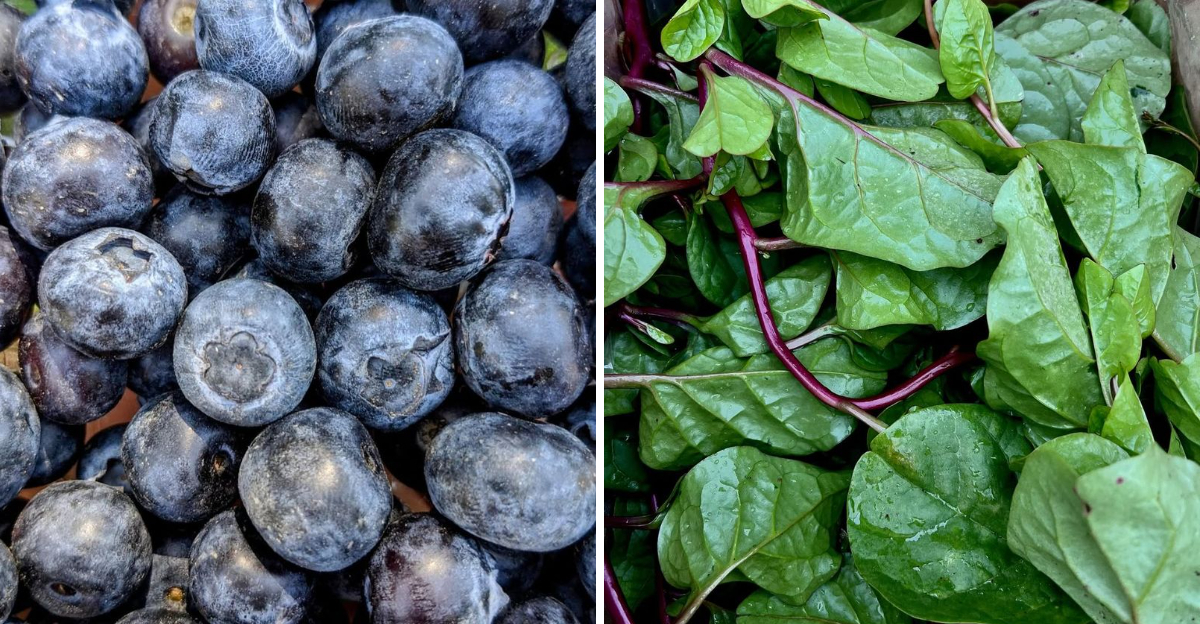
Incorporating superfoods into your weekly diet can provide a myriad of health benefits. These nutrient-rich foods are packed with vitamins, minerals, and antioxidants, offering a natural way to boost your well-being. Whether you’re looking to improve digestion, enhance energy levels, or support your immune system, superfoods have something to offer everyone. Below, discover 23 powerful superfoods that can elevate your meals and nourish your body.
1. Blueberries
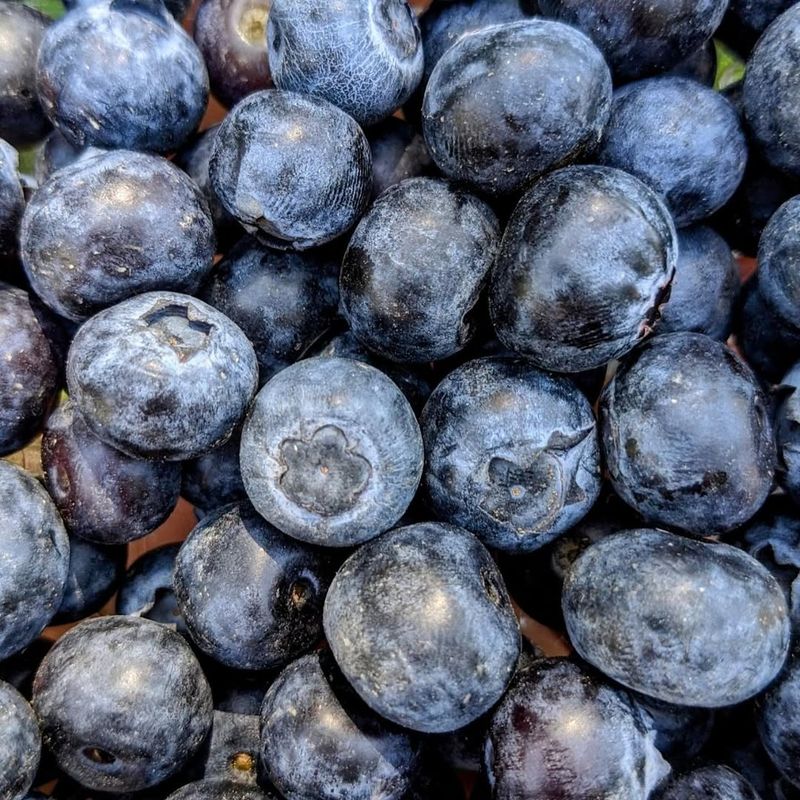
Blueberries are small but mighty berries packed with antioxidants, particularly anthocyanins, which give them their vibrant blue color.
Rich in vitamin C, they help support the immune system. Blueberries are also high in fiber, aiding digestion and promoting a feeling of fullness.
Enjoy them fresh, frozen, or in smoothies for a delicious and nutritious treat that can enhance brain function and reduce oxidative stress.
2. Kale
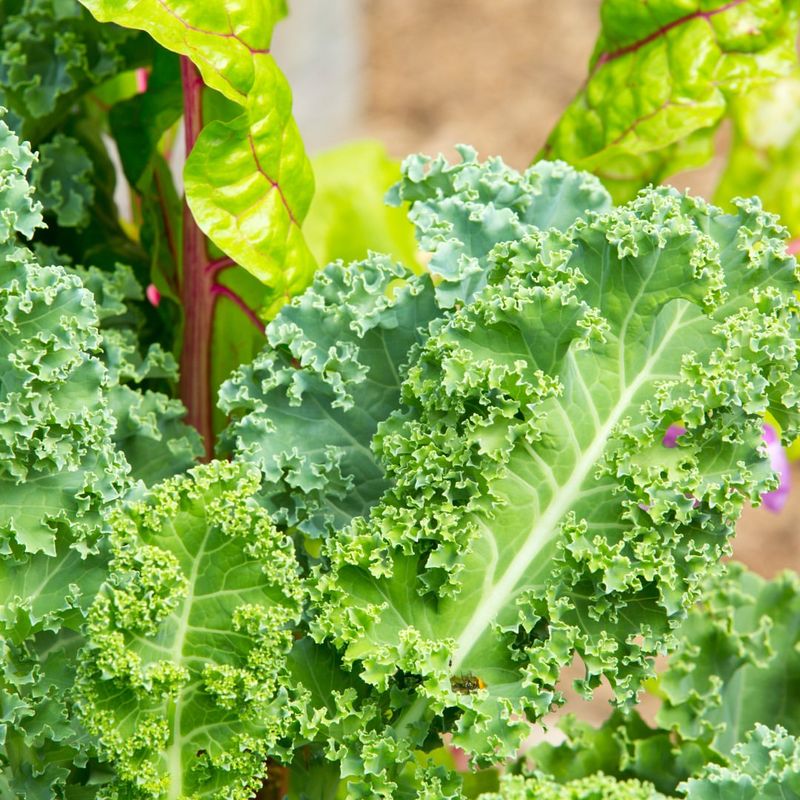
Kale is a leafy green vegetable known for its high nutrient density. It’s an excellent source of vitamins A, K, and C, as well as calcium and antioxidants.
Including kale in your diet can help improve bone health, support the immune system, and provide anti-inflammatory benefits.
Whether you add it to salads, smoothies, or sauté it as a side dish, kale is a versatile superfood worth incorporating into your meals.
3. Quinoa
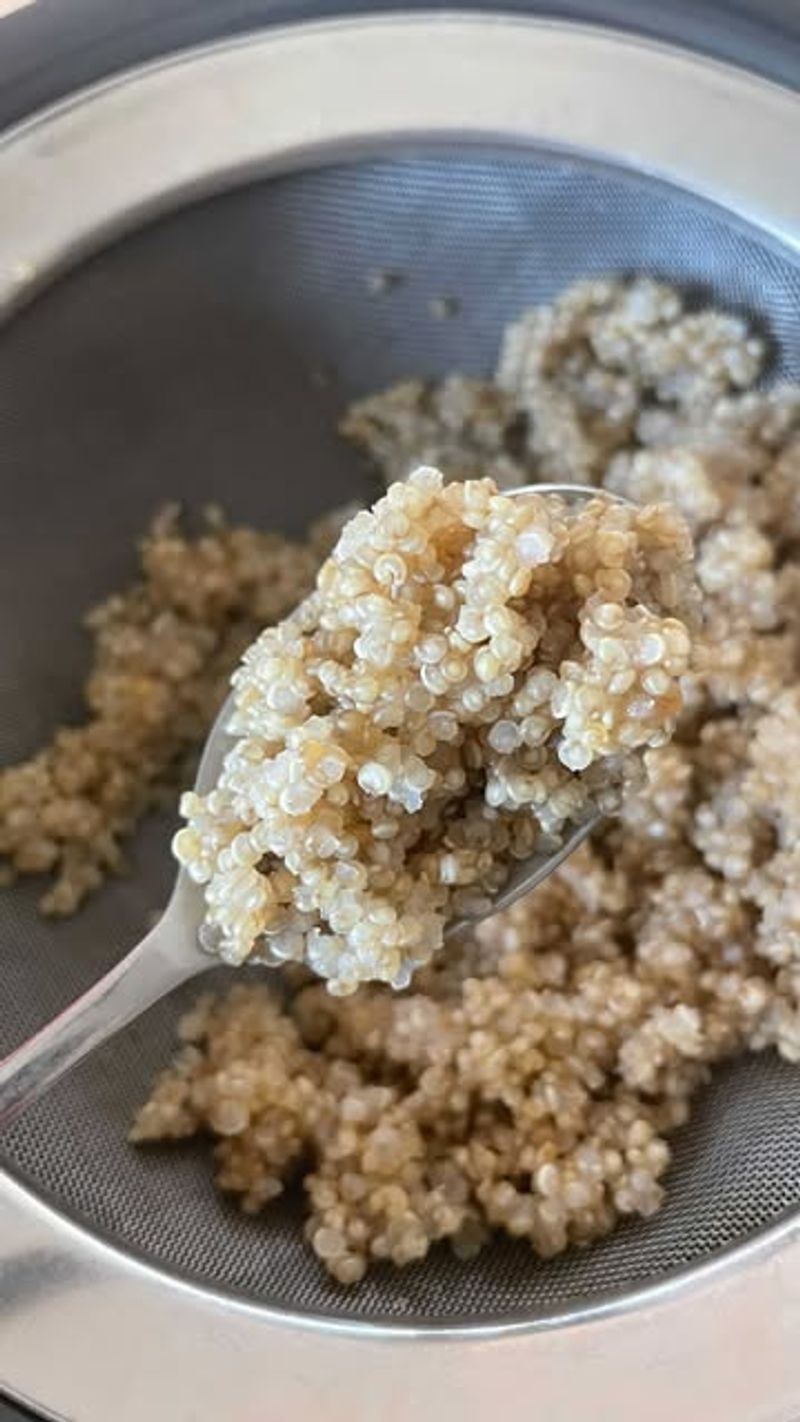
Quinoa is a gluten-free, whole-grain carbohydrate that is also a complete protein source, containing all nine essential amino acids.
Rich in magnesium, iron, and fiber, quinoa supports energy production and digestive health. Its versatility allows it to be used in various dishes, from salads to breakfast bowls.
Quinoa’s nutty flavor and fluffy texture make it an excellent substitute for rice or pasta, adding both nutrition and taste to your meals.
4. Avocado
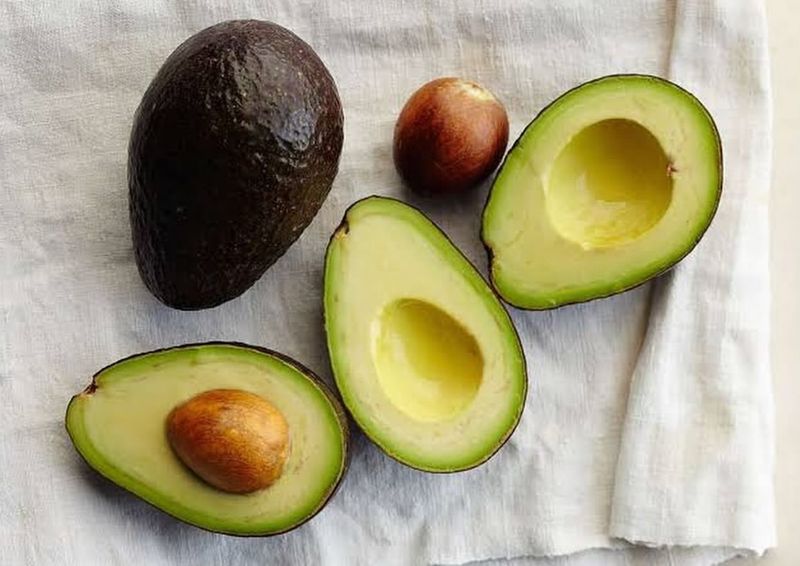
Avocados are creamy, delicious fruits rich in healthy fats, particularly monounsaturated fats that support heart health.
They are also an excellent source of potassium, which helps maintain healthy blood pressure levels. Avocados are versatile, enhancing the texture and flavor of dishes from salads to smoothies.
Their high fiber content supports digestion and prolongs satiety, making them a great addition to your dietary routine.
5. Chia Seeds
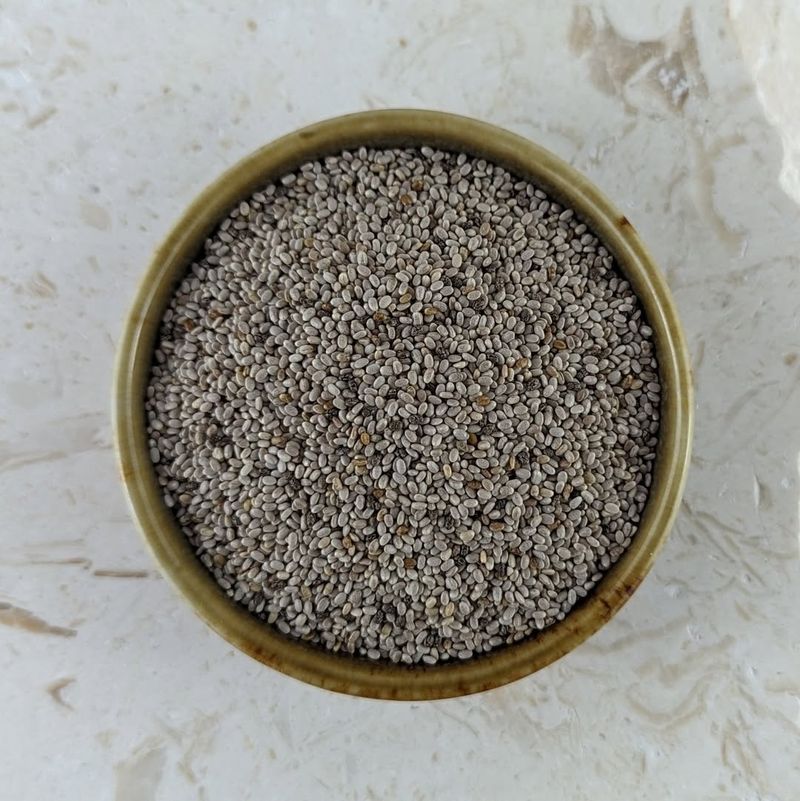
Chia seeds might be small, but they are powerhouses of nutrition. These tiny seeds are packed with omega-3 fatty acids, calcium, and antioxidants.
When mixed with liquid, they swell and form a gel-like consistency, making them perfect for puddings or as a thickener in recipes.
Their high fiber content aids digestion and helps keep you feeling full longer, supporting weight management efforts.
6. Spinach
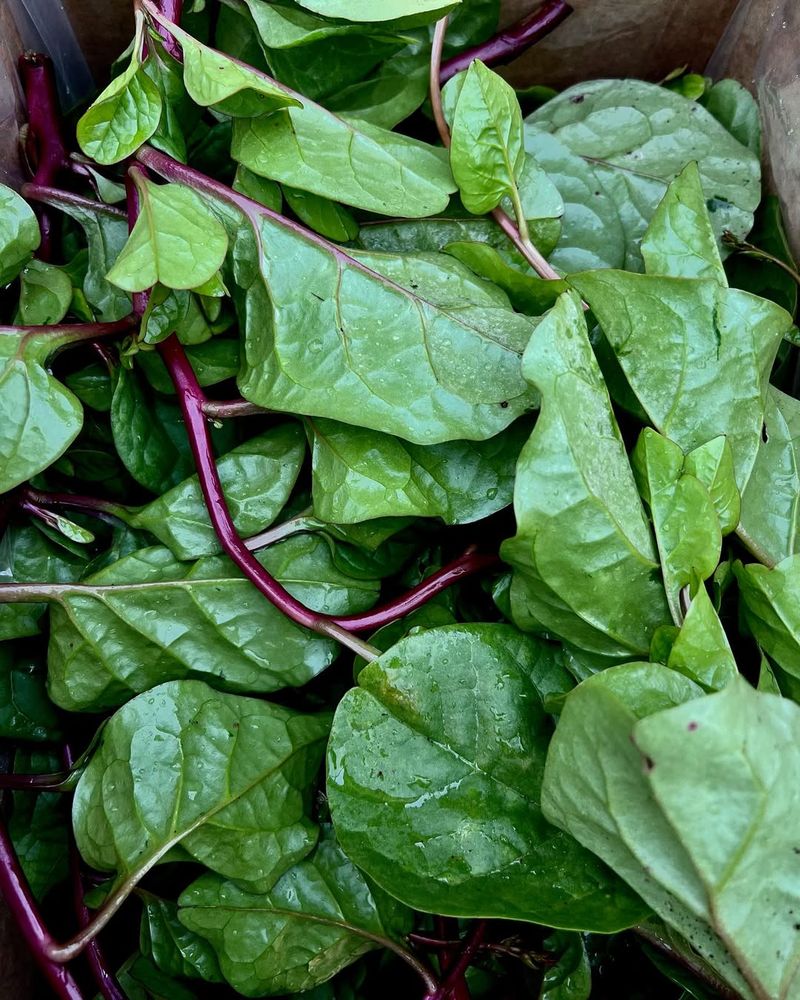
Spinach is a highly nutritious leafy green, abundant in iron, folate, and vitamin K. It supports healthy blood circulation and bone health.
This versatile vegetable can be consumed raw in salads, blended into smoothies, or cooked in various dishes, making it an easy addition to meals.
Spinach’s mild flavor and tender texture enhance both taste and nutrition, fitting seamlessly into a health-conscious diet.
7. Almonds
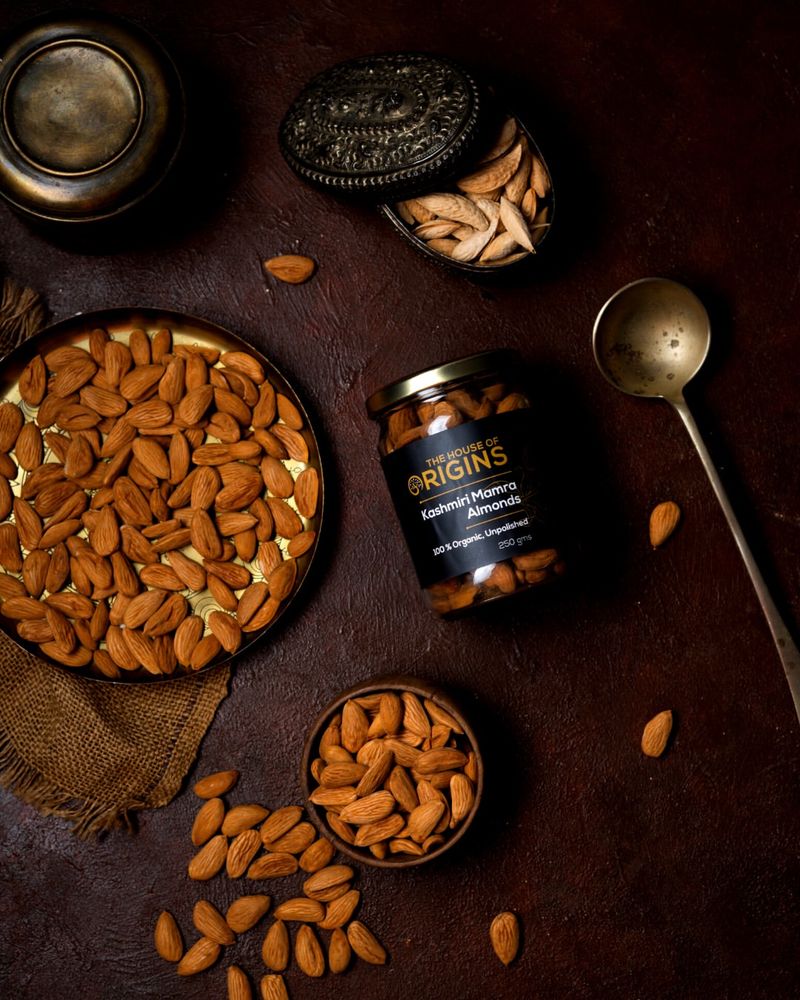
Almonds are crunchy, nutrient-dense nuts rich in healthy fats, vitamin E, and magnesium. They support heart health and provide anti-inflammatory benefits.
Consuming almonds can help maintain healthy cholesterol levels and provide a quick energy boost.
Whether enjoyed as a snack, in almond milk, or as a salad topping, almonds offer a satisfying crunch and nutritional value.
8. Sweet Potatoes

Sweet potatoes are flavorful, starchy root vegetables high in beta-carotene, vitamins A and C, and fiber. They support eye health and boost the immune system.
Their natural sweetness and creamy texture make them a versatile ingredient in both savory and sweet dishes.
Whether baked, mashed, or roasted, sweet potatoes add vibrant color and nutrition to your plate.
9. Broccoli

Broccoli is a cruciferous vegetable known for its cancer-fighting properties due to its high levels of sulforaphane. It’s also rich in vitamins C and K.
Incorporating broccoli into your diet may aid in detoxification and improve digestive health.
Its crunchy texture and slightly bitter flavor can be enjoyed steamed, roasted, or raw in salads, making it a versatile and nutritious choice.
10. Salmon

Salmon is a fatty fish loaded with omega-3 fatty acids, essential for heart health and reducing inflammation. It’s also an excellent source of high-quality protein.
The rich, buttery flavor of salmon makes it a favorite in various culinary traditions.
Whether grilled, baked, or smoked, its versatility and nutritional profile make salmon a standout superfood.
11. Turmeric

Turmeric is a bright yellow spice revered for its anti-inflammatory properties, largely due to its active compound, curcumin.
Including turmeric in your diet can support joint health and enhance the body’s antioxidant capacity.
Its earthy, slightly bitter flavor complements a variety of dishes, from curries to smoothies, offering both flavor and health benefits.
12. Ginger
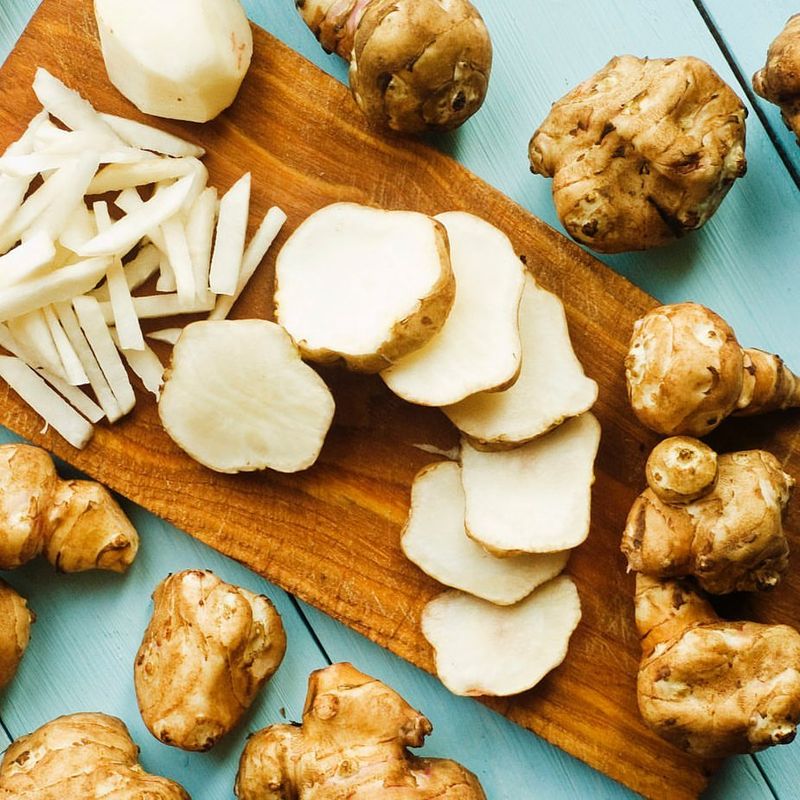
Ginger is a spicy root known for its digestive and anti-nausea properties. It’s rich in bioactive compounds like gingerol, which provide anti-inflammatory and antioxidant effects.
Consuming ginger can help soothe an upset stomach and improve digestion.
Its warm, spicy flavor enhances teas, soups, and stir-fries, adding both zest and health benefits to meals.
13. Green Tea

Green tea is a beverage brimming with antioxidants, particularly catechins, which are known for their potential to boost metabolism and support heart health.
Drinking green tea regularly can enhance brain function and provide a gentle energy lift without the jitters associated with coffee.
Its light, refreshing taste makes it a popular choice for those seeking a soothing, health-boosting drink.
14. Yogurt

Yogurt is a probiotic-rich food that supports gut health and aids digestion. It’s high in calcium and protein, contributing to bone health and muscle repair.
Incorporating yogurt into your diet can promote a balanced microbiome, enhancing overall well-being.
Whether enjoyed plain, with fruit, or as a base for smoothies, yogurt offers a creamy texture and health benefits.
15. Walnuts
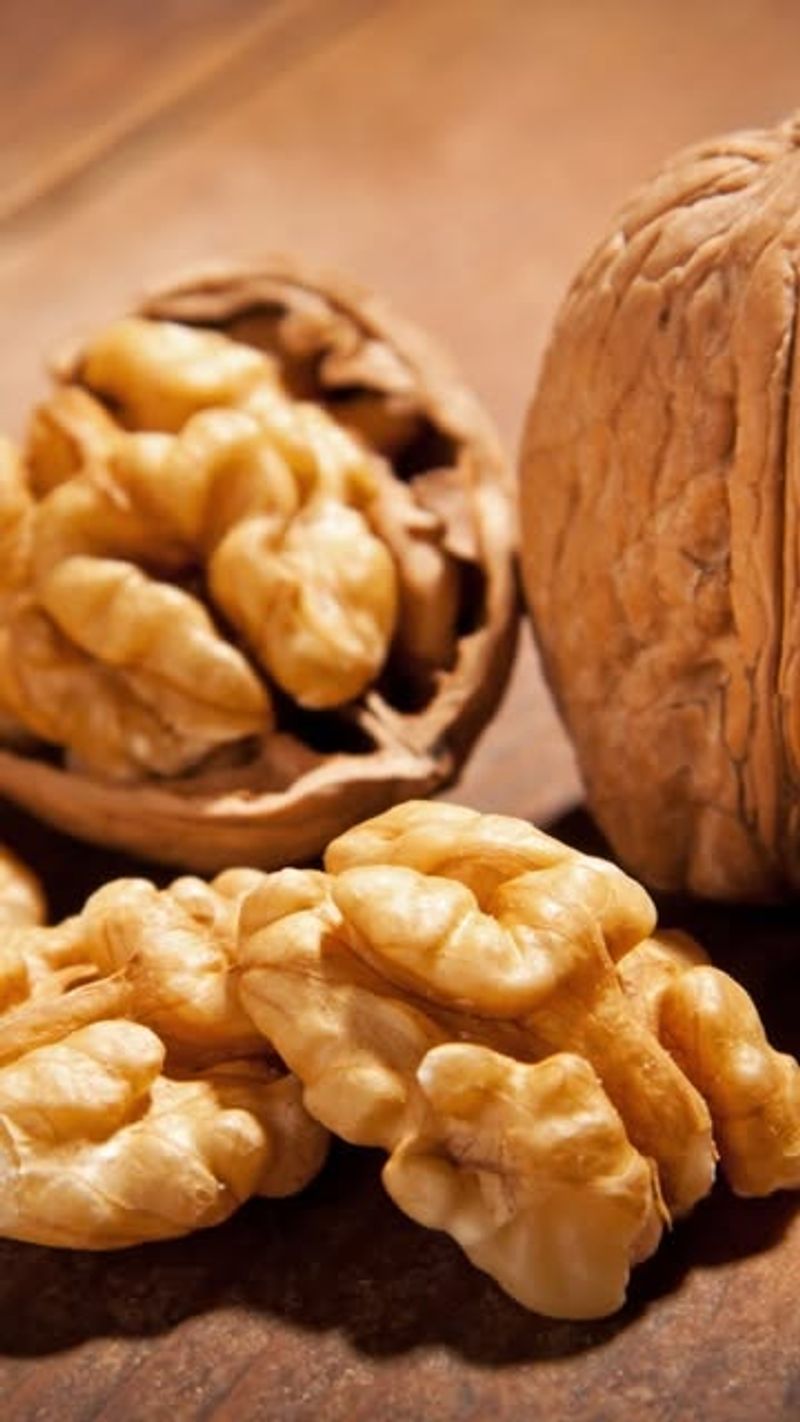
Walnuts are brain-shaped nuts known for their rich omega-3 fatty acid content, supporting brain health and reducing inflammation.
They are also high in antioxidants and vitamin E, promoting heart health and overall wellness.
Enjoy walnuts as a snack, in salads, or baked into goods for a nutritious crunch and flavor.
16. Goji Berries
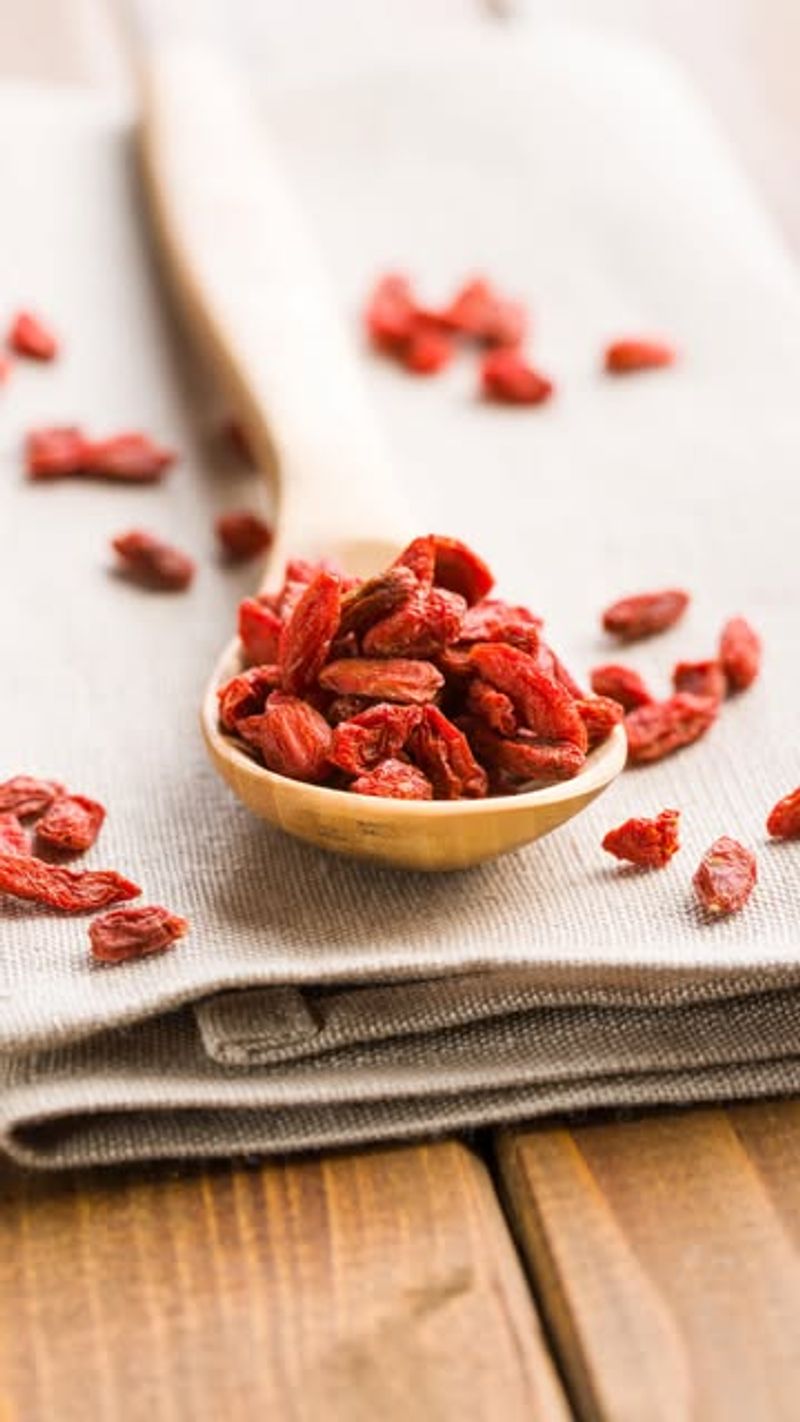
Goji berries are small, red fruits praised for their high antioxidant content and potential to boost immune function.
Rich in vitamins A and C, they contribute to healthy skin and eye health.
Enjoy them as a snack, in teas, or mixed into smoothies for a sweet, tart flavor and nutritional boost.
17. Flaxseeds
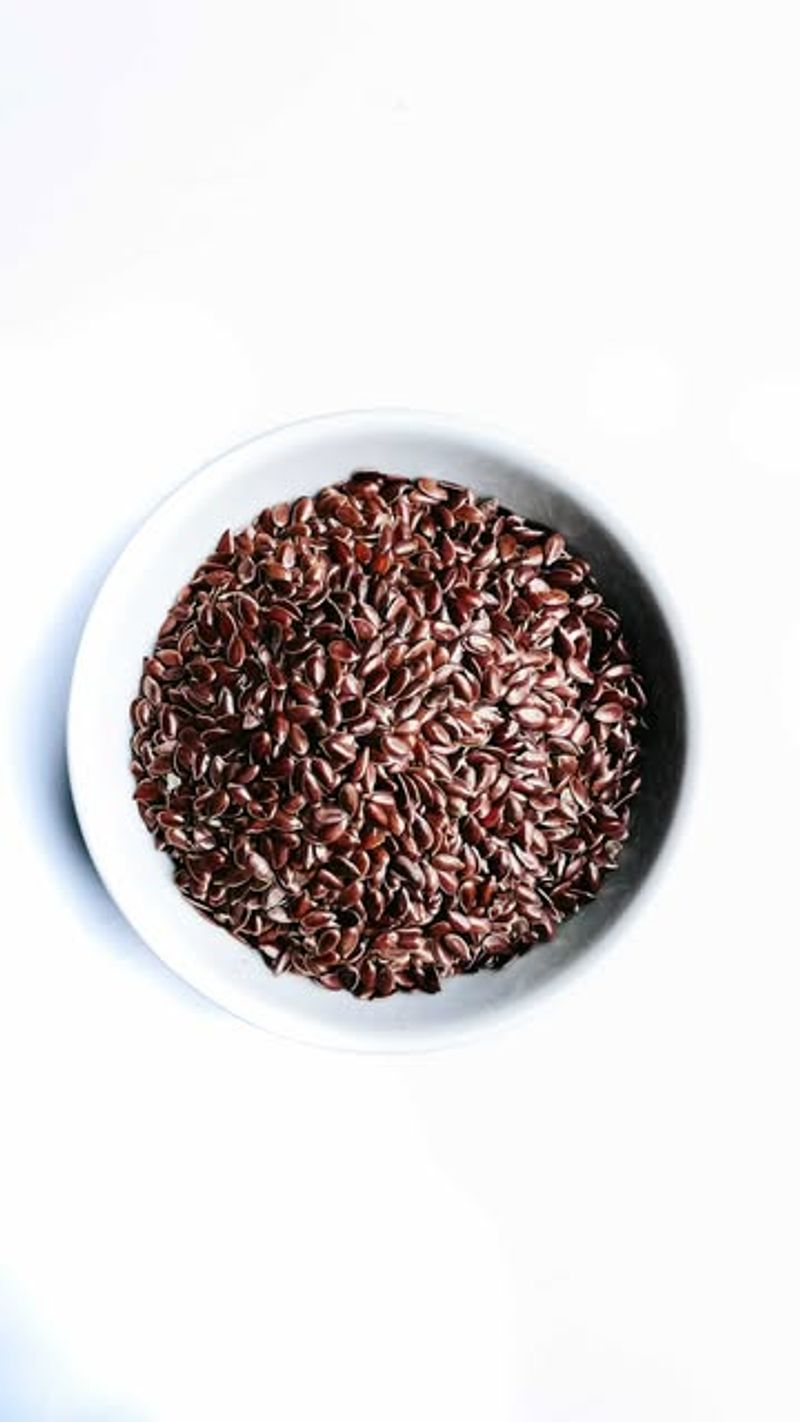
Flaxseeds are tiny seeds packed with omega-3 fatty acids, lignans, and fiber, offering heart health and digestive benefits.
Ground flaxseeds can be added to smoothies, baked goods, or sprinkled over cereals to enhance nutrition.
Their nutty flavor and health properties make them a valuable addition to a balanced diet.
18. Acai Berries

Acai berries are purple fruits renowned for their high antioxidant levels, particularly anthocyanins, which may support heart health.
Often found in smoothie bowls, acai berries are praised for their ability to boost energy and improve skin health.
Their rich, berry flavor and vibrant color make them a popular choice for health-conscious individuals.
19. Dark Chocolate

Dark chocolate is a decadent treat rich in flavonoids, which have antioxidant properties that can support heart health.
Consumed in moderation, it can improve blood flow and lower blood pressure.
Choose chocolate with at least 70% cacao for maximum health benefits, enjoying its rich flavor and satisfying texture.
20. Beets

Beets are vibrant root vegetables high in nitrates, which may improve blood flow and lower blood pressure. They are also rich in fiber and vitamin C.
Enjoy beets roasted, in salads, or as a juice for a potent nutritional boost.
Their earthy flavor and striking color make them a delightful and nutritious addition to various dishes.
21. Pumpkin Seeds
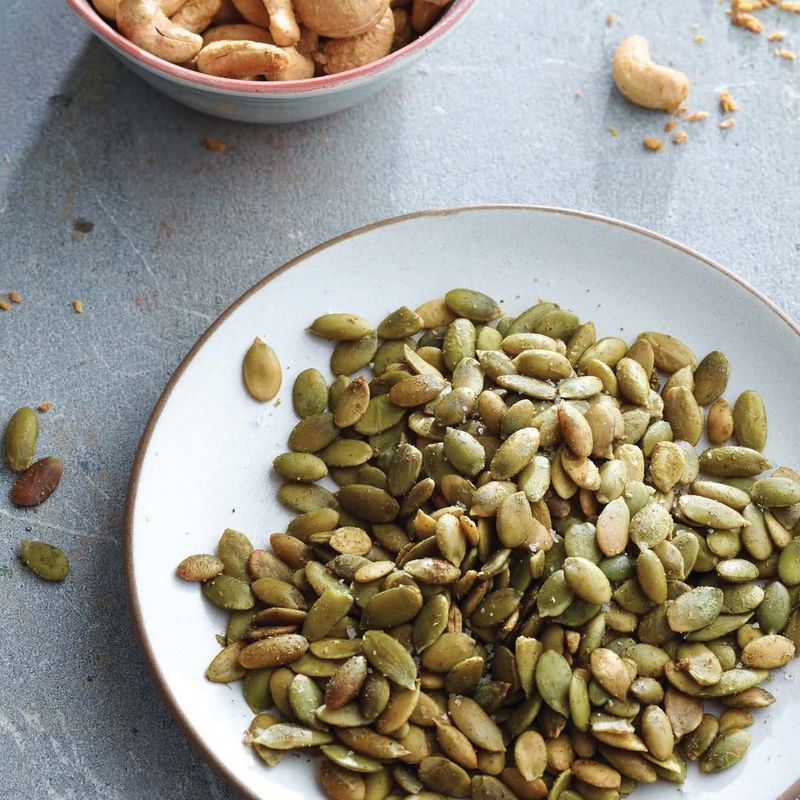
Pumpkin seeds are small but mighty, packed with magnesium, zinc, and healthy fats. They support heart health and provide anti-inflammatory benefits.
These seeds make a great snack or crunchy addition to salads and baked goods.
Their nutty flavor and nutritional value make them a versatile and healthful addition to your diet.
22. Pomegranates
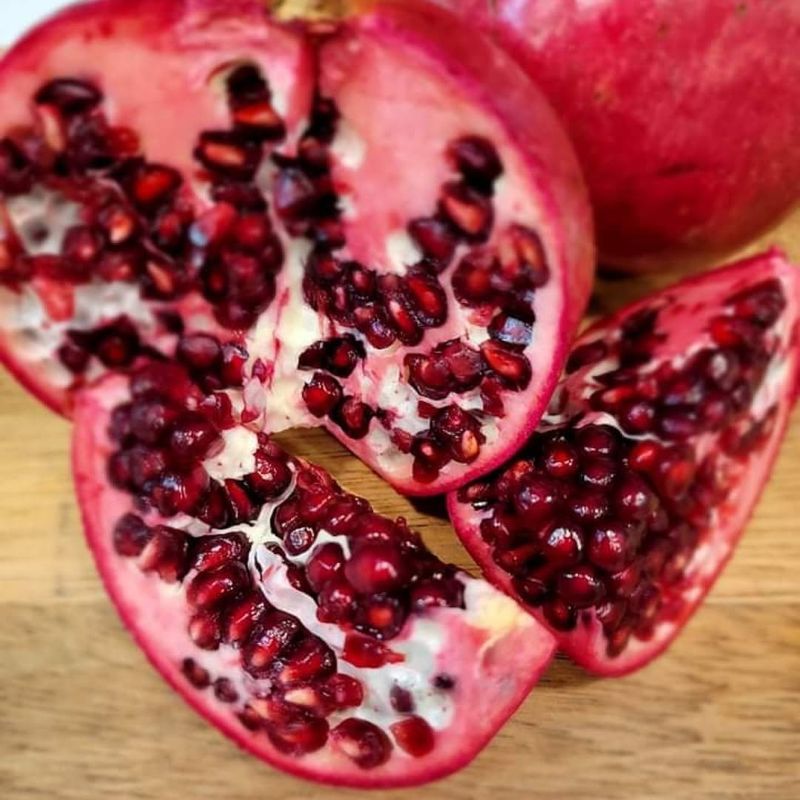
Pomegranates are juicy fruits known for their high polyphenol content, which offers antioxidant and anti-inflammatory benefits. They support heart health and may improve memory.
Enjoy their seeds fresh, in salads, or as juice for a tart, refreshing flavor.
Their bright color and unique taste add a vibrant touch to various culinary creations.
23. Lentils
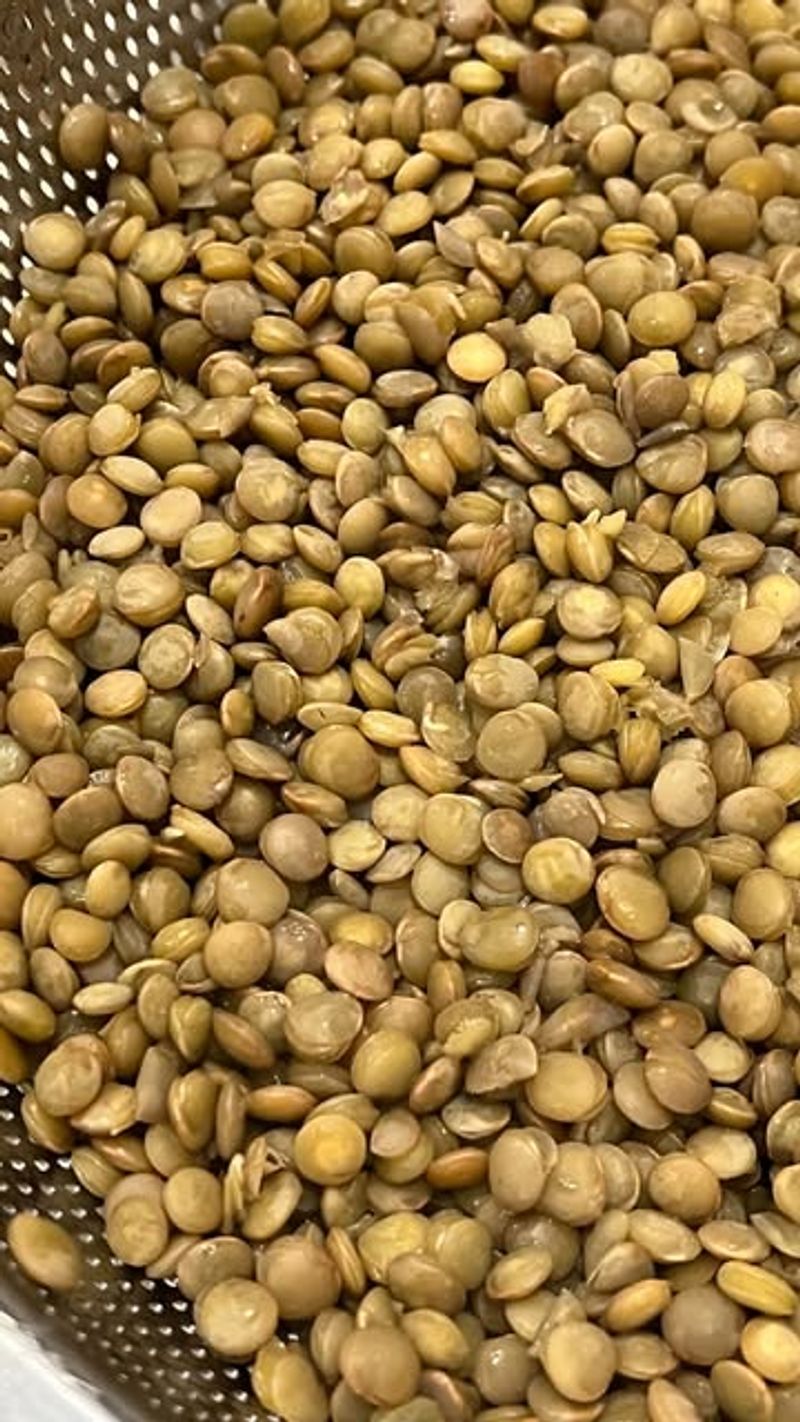
Lentils are legumes rich in protein, fiber, and essential nutrients like folate and iron. They support heart health and aid in digestion.
Versatile and easy to cook, lentils are perfect for soups, stews, and salads.
Their mild, earthy flavor and hearty texture make them a staple in many cuisines, providing both nourishment and satisfaction.
